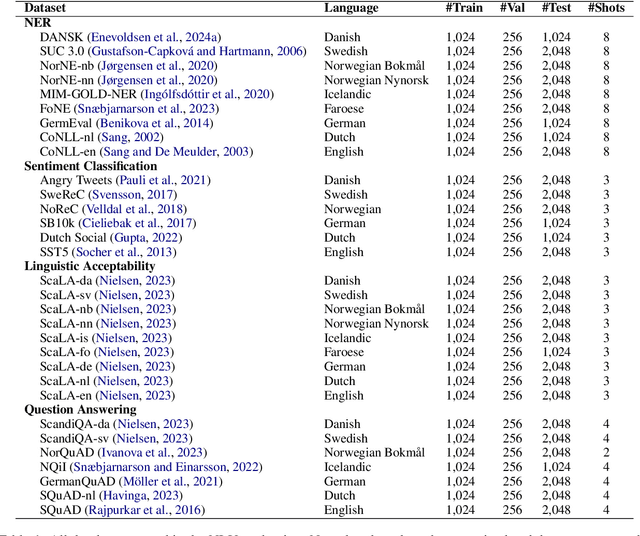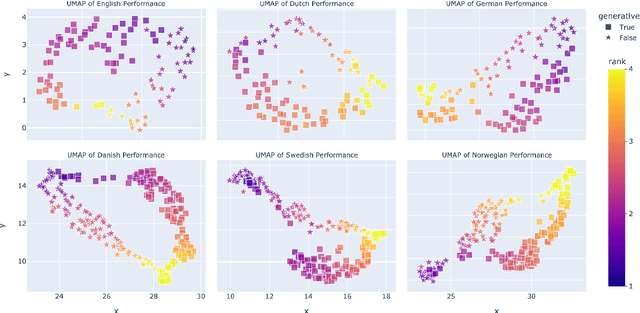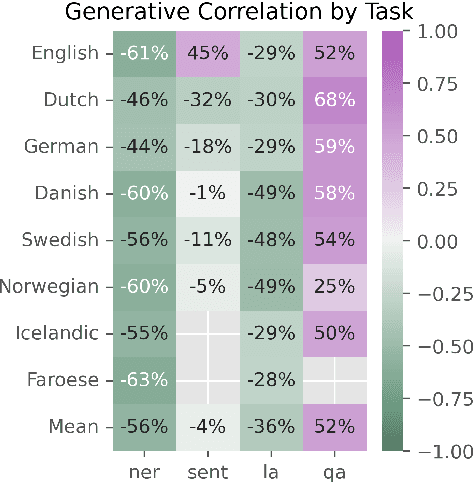Encoder vs Decoder: Comparative Analysis of Encoder and Decoder Language Models on Multilingual NLU Tasks
Paper and Code
Jun 19, 2024



This paper explores the performance of encoder and decoder language models on multilingual Natural Language Understanding (NLU) tasks, with a broad focus on Germanic languages. Building upon the ScandEval benchmark, which initially was restricted to evaluating encoder models, we extend the evaluation framework to include decoder models. We introduce a method for evaluating decoder models on NLU tasks and apply it to the languages Danish, Swedish, Norwegian, Icelandic, Faroese, German, Dutch, and English. Through a series of experiments and analyses, we address key research questions regarding the comparative performance of encoder and decoder models, the impact of NLU task types, and the variation across language resources. Our findings reveal that decoder models can achieve significantly better NLU performance than encoder models, with nuances observed across different tasks and languages. Additionally, we investigate the correlation between decoders and task performance via a UMAP analysis, shedding light on the unique capabilities of decoder and encoder models. This study contributes to a deeper understanding of language model paradigms in NLU tasks and provides valuable insights for model selection and evaluation in multilingual settings.
 Add to Chrome
Add to Chrome Add to Firefox
Add to Firefox Add to Edge
Add to Edge